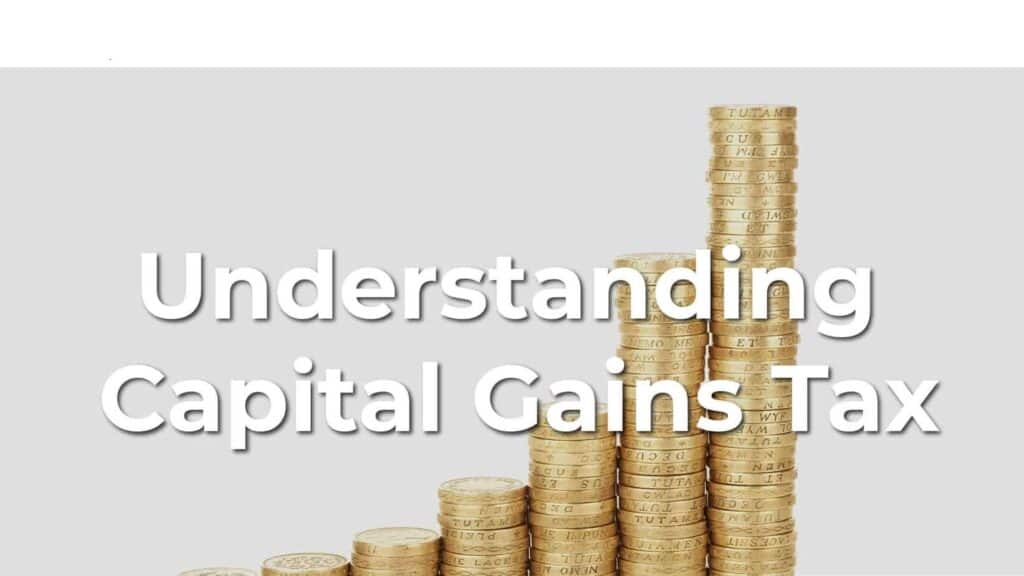When it comes to taxation, the United States has a complex system with many different types of taxes. One type of tax that some people may not be familiar with is the capital gains tax. In short, capital gains taxes are levied on the profit from the sale of an investment or asset. Keep reading to learn more about capital gains taxes in the United States, including how they are calculated and what strategies you can use to potentially reduce your tax bill.

When it comes to taxes, there are few things more confusing than capital gains. What are they? How are they taxed? What happens if you don’t pay them? We’re here to answer all those questions (and more!)
-
What are capital gains and how are they taxed in the United States?
Capital gains are profits realized from the sale of certain investments or assets, and in the United States, they’re subject to taxation. The tax rate you’ll pay on your capital gains depends on a number of factors, including your income bracket and how long you held the asset before selling it. Short-term capital gains (assets held for one year or less) are taxed at your ordinary income tax rate, while long-term capital gains (assets held for longer than one year) are taxed at a lower rate of 0%, 15%, or 20%, depending on your tax bracket. Source
-
How do you calculate your capital gains tax liability on investments or assets sold at a profit?
To calculate your capital gains tax liability, you’ll need to know your marginal tax rate and how long you held the asset before selling it. Your marginal tax rate is the highest tax bracket you fall into.
3. Are there any strategies you can use to potentially reduce your capital gains tax bill or defer payment?
Yes! There are a few strategies you can use to lower your taxable capital gain or possibly avoid paying taxes on capital gains. One strategy is to invest in a tax-advantaged retirement account like a 401(k) or IRA; these types of accounts offer special tax breaks that can help reduce your taxable gain. Another strategy is to hold onto your assets for longer than one year; as we mentioned earlier, long-term capital gains are taxed at a lower rate than short-term ones. You can also offset your capital gains with capital losses from other investments; if you have capital investment losses elsewhere, you can use them to offset capital gain.
-
What are the consequences of not paying your capital gains taxes when they’re due?
If you don’t pay your capital gains taxes when they’re due, you’ll be subject to interest and penalties from the IRS. The amount of interest you’ll owe depends on how much money you owe in taxes; the penalty is usually around 0.5% of your unpaid taxes per month, up to a maximum of 25%. In addition, if the IRS believes that you intentionally avoided paying taxes on your capital gains, you could be subject to additional fines and even jail time. Source
-
How has the taxation of capital gains changed over time, and what might be in store for the future?
The taxation of capital gains has changed quite a bit over time; however, the 2017 Tax Cuts and Jobs Act made some of the biggest changes in recent history. The new law maintains the 0% and 15% rates but raises the thresholds for each bracket; as a result, more taxpayers will now fall into the 0% category.
-
Is there anything else taxpayers should know about Capital Gains Taxes in the US?
Collectibles such as art, coins, or stamps may be subject to different rules when it comes to taxation; typically, these items are taxed at a higher rate than other investments like stocks or bonds. It’s always best to consult with a professional before selling any collectibles so that you can determine exactly how much taxes you’ll owe on the sale.
Whether you’re a seasoned investor or just getting started, it’s important to understand how capital gains taxes work in order to potentially minimize your liability come tax time. By following the strategies outlined in this blog post—such as reinvesting profits or taking advantage of tax-loss harvesting—you can possibly reduce your capital gains tax bill. Of course, every investor’s situation is unique, so we recommend speaking with a financial advisor or tax professional before making any decisions about your portfolio. Thanks for reading!
Start the Conversation with Manna Wealth Management

Disclaimer: The information and opinions expressed herein have been obtained from sources believed to be reliable but are not guaranteed for accuracy or completeness; are for information/educational purposes only; do not constitute a solicitation or recommendation for the purchase or sale of any security; are not unbiased/impartial; subject to change; may be from third parties. Opinions expressed are those of the Author and do not necessarily reflect those of B. Riley Wealth Management or its affiliates. Investment factors are not fully addressed herein. For important disclosure information, please visit www.brileywealth.com/legal-disclosures.
Tax Disclaimer: Manna Wealth Management and its affiliates are not in the business of providing tax or legal advice. These materials and any statements contained herein should not be construed



